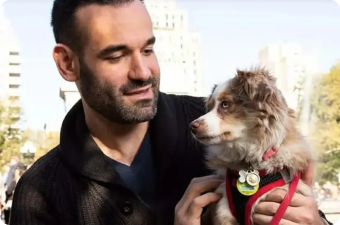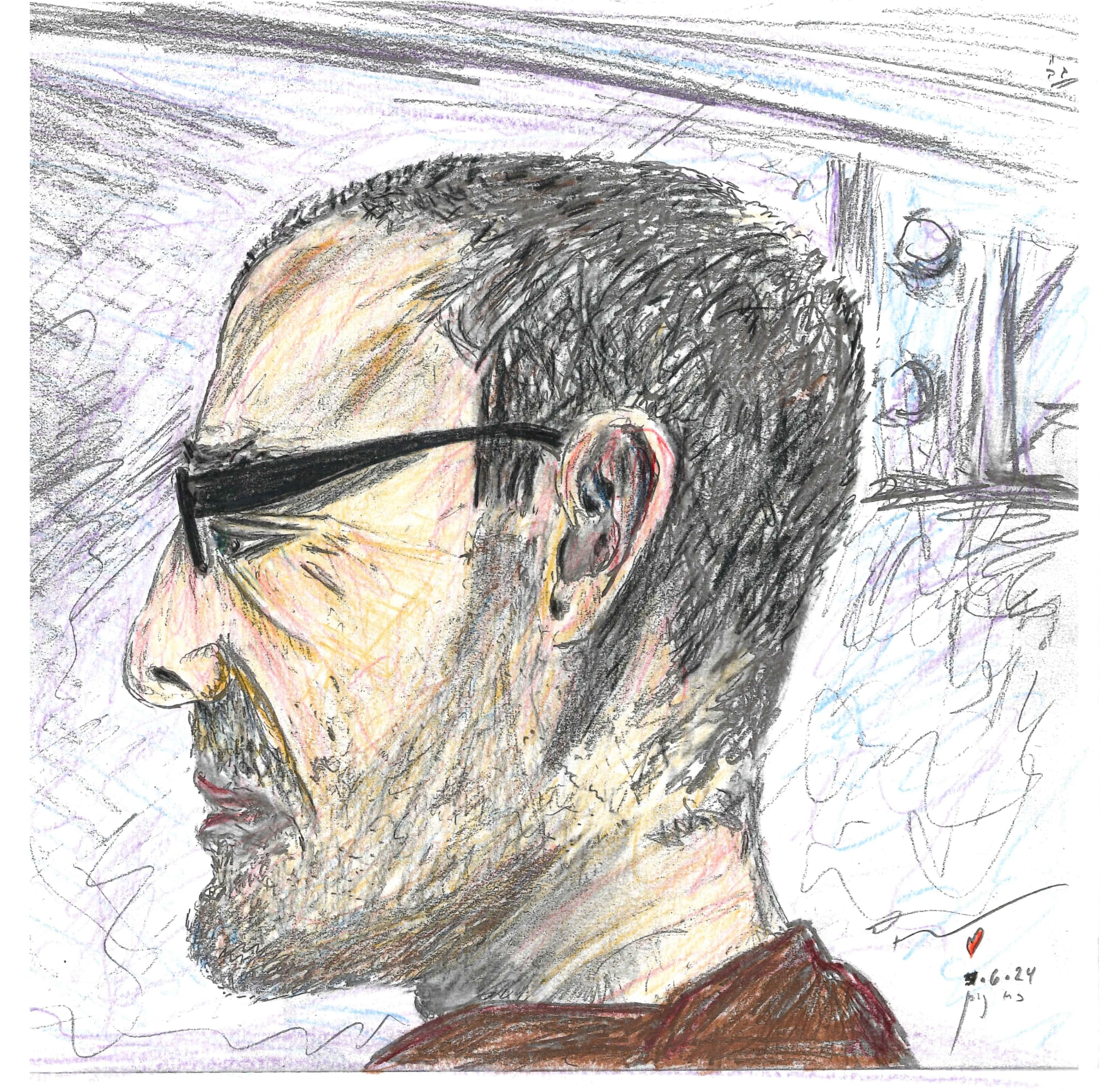
Hi Friends,
A few quick Torah thoughts…
In this and last week’s Torah portions, YaYakhel and Pikudei, G-d tells Moses to have the people build the Mishkan, Tabernacle, a traveling Temple that our Rabbis explain was a “home for G-d” to convene with the Jewish people until we built the Temple in Jerusalem, a model of Heaven on Earth. We learn a few interesting (I hope) lessons…
1. INSPIRATION
G-d stresses to Moses repeatedly that the Mishkan was to be made of *voluntary* contributions, from people of all levels of wealth, knowledge, genders, ages, and tribes — and that not only the materials but the *labor* and *artistry* will be given by people who feel *inspired* to do so…
Lately, the world is catching onto the importance of inspiration, listening to our Souls for creative inspiration.
Trending books like Rick Rubin & Neil Strauss’s excellent, “The Create Act”, suggest that genius comes from relaxing and tuning into the inspiration G-d provides. The same is true for many therapy and rehabilitation programs that work, like AA/12 Steps and IFS, where letting go and being open to G-d’s will is the path toward inspiration.
The lesson however, was found earlier, in the Torah, in this week and last week’s portions describing the creatives who built the Mishkan and its vessels as people whose “hearts” were inspired to their crafts.
Describing the “Creative Director” of the project Moses says, “The Lord has chosen Betzalel…and has filled him with the spirit of G-d, with wisdom, understanding, and knowledge in all kinds of crafts…” (Ex 35:30-33) (Israel’s premier art college is named Betzalel.)
When we have faith and listen to that ‘Spirit of G-d’ in each of us, good stuff comes.
I love this lesson because The Torah has been often defamed as the book of a “vengeful Old Testament G-d”, but is actually about love, meditation, and mindfulness of the part of G-d inside us all.
2. CREATION
Rabbi Sacks points out the word, “YaYakhel”, “and he [Moses] gathered [the people]”, and teaches it was the *joining together* to build the Mishkan that transformed the Jewish people into a “Kahal”, “community”, (same root: KHL). Fear (that Moses left them at Mt Sinai) drove them to “create” an idol, the Golden Calf, Faith drove them to “create” a true home for G-d on Earth according to His Will.
Notably, G-d does not work to *destroy* their urge to create, but to *redirect* it. Many schools of therapy fail by trying to destroy or “defeat” the patterns and “parts” of us that lead to regrettable actions, to argue they’re “illogical” or “irrational”, to create an “aversion” to that urge. But much of what is great in life is completely illogical and irrational! The greatest loves, the best music and art — they make sense to our hearts, even if we cannot explain why. Why do you love someone? Because you do. You cannot defeat a positive urge — you can only direct it towards a healthy goal.
The Talmud teaches us that for every negative urge, G-d created a positive outlet. A man who wishes to shed blood can become a butcher or surgeon, someone who wishes to violate Shabbat can become an EMT or doctor or soldier who may violate Shabbat to save a life, etc.
This is the path for effective reform within Justice systems. When men are awakened to the idea that they can *create* their life, that “demographics are not destiny”, that there is an *extasy* in building together with a diverse team, they begin to think of the future, and act towards it!
Surely it is no coincidence that the loss of art, woodworking, and cooking classes in schools coincided with a spike in depression. The more we become a “consumer” culture, focused on the “individual”, the higher depression, isolation, and [word you can’t type on monitored email or Psych drags you in :)] rates spike.
Remember the story of Muslim Mike, who found G-d and purpose in prison, and works toward his dream of a food truck. “I would have chosen life.”
However, notably, G-d does not give each Israelite their own task — it is a “Kahal”, a group project. Mankind is happier building together.
Rabbi Sacks say this is the path to peace. When people of diverse backgrounds gather to create something bigger than themselves, they discover their brotherhood. It is not through uniformity that people bond, but by contributing their diverse skills and perspectives towards common goals and acts of kindness.
I lived this lesson a few nights ago, when my cellie was “instantly” released and they placed a random 26-year-old kid with me.
Jamal showed up with crocheted dreads (“wicks”), rasta cap, enough tattoos around his neck and eyes to give many pause, — and a stack of random, crumpled legal pad sheets and pages torn from magazines.
“When I heard I was bunking with you, I brought my business plan. Seeing as you can draw, maybe you can help me make it come to fruition.”
He told me his dream for “Mr. Munch”, a restaurant serving seafood, hamburgers, chicken and sides…
“I’m Mr. Munch, I love to cook,” Jamal said as he wrapped one of the two burritos he would make for himself and scarf down between 9:30pm lockdown and 10:30 count (Oh to have the metabolism of 26 again). The kid brought tupperware and turned the desk into a kitchen for a one-night stayover, and man, did he look at that food and eat it with pleasure most of us don’t muster at a fancy restaurant. This kid loves food.
He pulled out magazine pages of sandwhiches, which were as non-Kosher as they get, and waxed poetic about his ability to make them, and how he’d plate them.
I said, “You know, I once read a great line in a book, E-Myth. Something like, ‘Just because you love to bake, doesn’t mean you’ll love running a bakery.’”
He paused to think, and we discussed the pluses and minuses of running a restaurant. Instead of sketching, we chatted business concepts like, fundraising, overhead, capex, staffing, shrinkage, marketing, liabilities… we discussed how chains re-use the same ingredients to limit inventory and minimize the need for skilled labor, how they use color psychology, how they market to the community…
For a few hours in a 7×7 cell, a 41-year-old Jewish guy with a yarmulke and big beard (I haven’t shaved since I came in — the tiny Muslim Chaplain calls me “Almost Rabbi” with a naughty giggle) and a 26-year-old Jamaican / Mississippi kid raised in rough part of South Florida who spent much of his life from 15 until now in prisons, chatted business.
This young man who didn’t care to make it through high school was suddenly very interested in math, writing, design, and life skills.
In the morning, I sketched his revised vision for “Mr. Munch” — which includes a 3D figurine of his daughter (he has 2 kids) holding a sign where customers can scan a QR to donate to a local charity, and a buffet-style line like Chipotle to reduce the need for skilled labor — made him a list of books to read & concepts to learn, and gave him the layout for the daily planner I use to squeeze the most out of my day and get into a positive mindset (works, He called his mom to get the books, and showed his friends the sketch. There’s excitement at FCI for Mr. Munch, and Jamal has a plan and purpose for his time here so he’s ready to build something that elevates himself, his family, and his community.
3. ELEVATION
Third, a beautiful lesson literally and figuratively in Pikudei — very similar to #2.
At Exodus 38:8 we get one line describing the “Kiyor”, a laver, a basin and base, from which the priests would wash their hands and feet. Rashi (and ArtScroll Stone) explain that the Kiyor was made of thousands of polished copper mirrors that the women used to beautify themselves in Egypt so their husbands would feel desire despite hard slave labor.
Moshe had thought, the commentary explains, that mirrors used for a seemingly vain, sexual purpose should not be accepted, but G-d told him that the women’s work to ensure the future of the Jewish people, even in the face of brutal slavery, was so holy that 100% of the mirrors must be integrated to create the Kiyor, from which the priests would purify themselves.
This is another example of redemption, of how “base” desires can be directed for incredible good. In today’s selfie society we worry about how we look for ourselves, but these women worried about it to build values-driven families and ensure the future of the Jewish people. (Bonus lesson: What we see in the mirror is driven by our mindset.)
THE POINT OF EXISTENCE (Spoiler alert?)
I often lay on my bunk (especially during recent times of pain) wondering, What is the point of Creation? There is the concept of Tzimtzum, Arizal explains, that G-d had to self-limit, pull back his complete goodness, to “make space” for the world, and it is our task to then pull back the darkness of this limitation to find G-d. (Norm MacDonald, of all people, explains this well to Larry King, saying he learned it from a Rabbi — worth a Google.)
But so what? Is life some sort of sociopathic, narccicistic peekaboo game by an immature, needy G-d who craves the adoration of the “simulation” characters He created? That doesn’t seem benevolent.
Then it hit me… the greatest feeling of love is when we see someone we care for overcome an obstacle, reach another level, break through a barrier.
Love is not about what we get, but about experiencing the growth and elevation of those we love, feeling their joy as they reach a new milestone. It doesn’t matter if it’s the joy of a puppy learning a new trick, a baby learning to walk, a child acing a test, a friend overcoming a disease, a couple getting married, a partnership launching a business.
Entrepreneurs are inspiring, shows like Shark Tank are popular, because deep inside each of us is a part of G-d, Who loves seeing us elevate ourselves and each other.
The Lubavitcher Rebbe — who has done more to free Jews spiritually, mentally, and physically from prisons real and conceptual through his emissaries at Reaching Out (Rabbi Shmuel Spritzer), Aleph (Rabbi Shalom Lipskar), and thousands worldwide — wrote, “He who is capable of the highest intellectual advancement, yet is constrained to a life of child-like mentality — surely this is a most painful restrain upon his true self.” The Rebbe continues to explain that spiritually, each level we reach becomes a confine from which we must break through the next day —
intellectual and spiritual stagnation is prison. (Source: Reaching Out newsletter)
Brian Zater got this, and despite being “inside” for 24 years now (may he be free soon, Please G-d), he is mentally more free and at-peace, and more productive, than many with all the freedom and money they could need on the outside. He is working on a new book, “Prison Mind”, to help others break free mentally, and I’ve had the joy and benefit of discussing it with him and having him as a friend and mentor. Many of the ideas come from the Torah, from books sent in by these Rabbis, and lately by my friend Mark and my dad (thanks Mark and dad!).
As I came to finish this letter (I write in short spurts due to technical restrictions and, lately, pain and tiredness), in the library, and extracted a pledge to use his daily planner and get into a routine. The joy and energy of excitement on his face made me forget about my pains for a bit.
Surely, this is the point of life — to elevate our fellow, and in doing so to elevate ourselves, our prisons, our cities, our society, and our world.
Rabbi Sacks quotes Talmud Berachot 64a: “The disciples of sages increase peace in the world. As it says, ‘All your children [banayikh] shall be taught of the Lord and great shall be the peace of your children,’ and continues, ‘Read not ‘banayikh’, your children, but ‘bonayikh’, your builders.’ When leaders become builders, they create peace… The proof is the Tabernacle. So long as the Israelites were builders there was peace among them… We are made by what me make.”
Together.
In fact, the “greatest Mitzvah” in the Torah, freeing captives, is discussed in Baba Basra, the Tractate on *building*, where we are taught that we must even sell the materials bought for a new synagogue to free a captive.
The #1 forms of Charity in the Torah are to free a man from captivity, and to help him start a business or become self-sustaining — to enable him to lift himself and others up (“Every. Single. Day.!”).
This is the ultimate peeling back of the darkness of “Tzimtzum” to reveal light. Giving us the ability to experience the G-d like, selfless joy of helping each other elevate is G-d’s great act of love.
Shabbat Shalom. Please G-d, let us celebrate it in freedom.
Ari
~~~
Group message. Draft 1.0. You may share.


